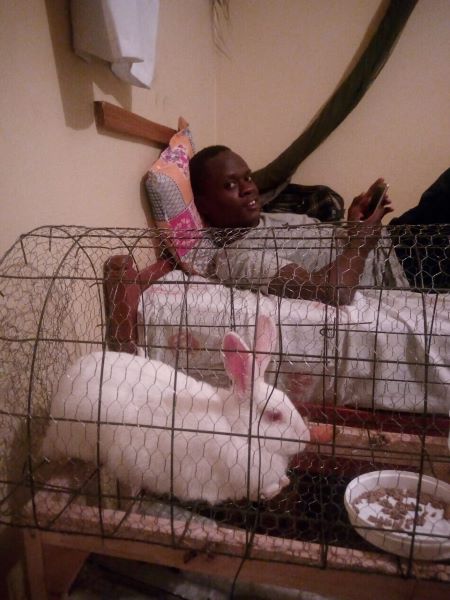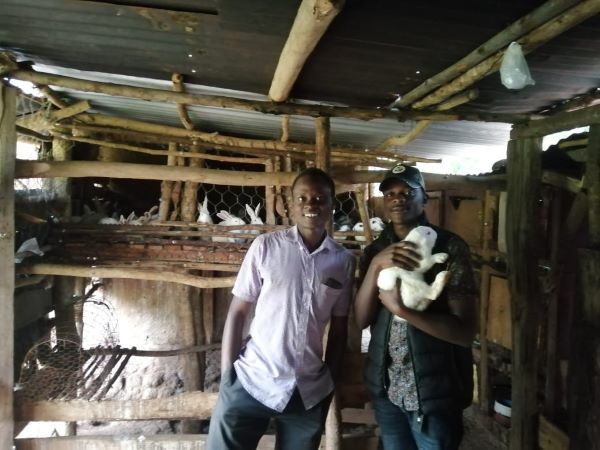Around 2016 when Emmanuel Eddionyi started rabbit rearing as a childhood hobby at his parents’ home at Stella, Migori County his was to have something attractive that would keep him busy during his leisure time.
However, in 2018 as a student at Kenyatta University he decided to do some online research on rabbit farming and marketing in Kenya only to find that it is a lucrative venture which can earn a serious farmer some tidy sum.
He would then, during one of his long vacations, turn once the hobby activity into a farming business with the support from parents in a bid to have at least an enterprise he could call his own.
“To raise the capital, I sold old parts of a machine belonging to my mother with her permission and realised Sh12,000 which he used to buy some four breeds from an established farmer from Kasarani, Nairobi,” said Emmanuel.
He bought one which was already pregnant at Sh3,000 and the rest at Sh2,500 each. The breeds included a New Zealand white, a Flemish giant, a Canadian giant and a California white.

The rest of the money was spent on constructing a structure and buying some feeds and since then he has never looked back.
Feeding
Emmanuel buys a 50kg of rabbit pellets which the rabbits feed on for a duration of three weeks to one month.
“This is costly as I spend Sh2,500 on the bag forcing me to supplement with some potato vines I grow and other locally sourced feeds to help me manage production costs,” he said.
He says the rabbits take 4-6 moths to mature.
At this stage, one rabbit can weigh 1.5-2.5 kilos live weight and this he sells at Sh800-1,000 depending on the breed.
He also sells six months old winners to other farmers for breeding purposes at Sh400-800, also depending on the breed.
Breeding
To be able to manage his animals well, he says he controls their breeding rate especially in seasons when green plants he uses to supplement commercial feeds are decreased.
Inbreeding is another area the enterprising farmer is keen to prevent among his animals by selective sales of the male rabbits and buying new bucks for the breeding stock.
Currently he has over 70 rabbits a stock which has increased over the time given he has been crossbreeding the pure breeds with the local ones resulting to a more resilient and more productive breeds.
Aesthetic feeling
Emmanuel, now a Bachelor of Education (Special Needs Education) graduate has since developed a close personal connection with the small ruminants in that by just interacting with them offers him a wonderful experience.
“To me, just tending to these small animals offers me an aesthetic feeling and a reprieve other than the cash I am able to earn from selling them for white meat lovers and other farmers. After all, I no longer depend on my parents for upkeep,” he said.
His vision in the near future even when he gets a job in the profession which has many off days is to transform the venture into a big farm of rabbits and in this, together with other farmers, they are coming up with an association of all rabbit farmers in Kenya through which they will be able to share information and sell their animals.










Wow!!Good job.I would like to connect with you Emmanuel.Find my details below:
Comments are closed.